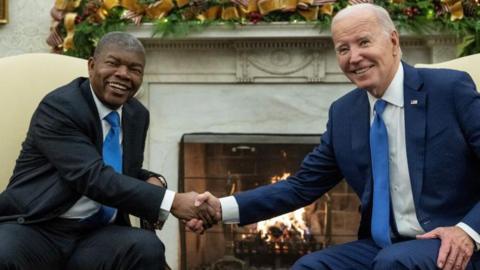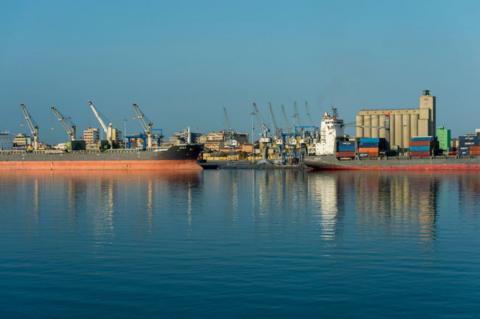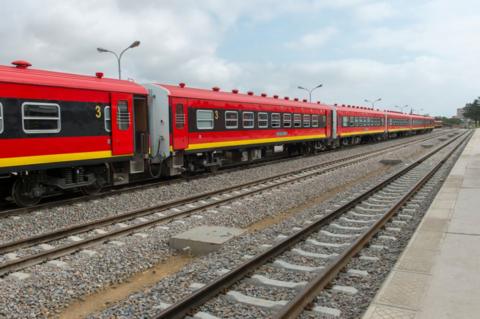But more and more African countries are considering reducing the export of raw materials to promote local processing.
Anthony Carroll, a minerals expert at the US Institute of Peace, said that if this happens, it could derail the projected economic impact of the corridor.
He is optimistic that the vast deposits of copper in DR Congo and Zambia will keep the Lobito Corridor viable as there exists "a steady demand" for it globally.
Lithium and cobalt have a more "cyclical" demand, he says.
The US Geological Survey estimates that DR Congo has nearly half the world's cobalt deposits.
The vast central African country currently accounts for about 63% of the global supply of the mineral, the bulk of which is exported raw.
Mr Angelo is optimistic that African countries will incrementally grow their industrial capabilities.
He described Biden's visit, and the investment in the Lobito Corridor, as a huge boost for Angola's efforts to change its image
"He presents Angola as a safe place to invest," Mr Angelo says, adding: "Where the US president goes, the whole world follows."
Angola has been rebuilding its infrastructure following the end of an almost 30-year civil war in 2002.
The conflict destroyed the colonial-era Benguela railway line, which is part of the corridor, with only 3% of it in use at the end of the conflict.
Efforts to revive it then began, with China being the first to invest in it.


